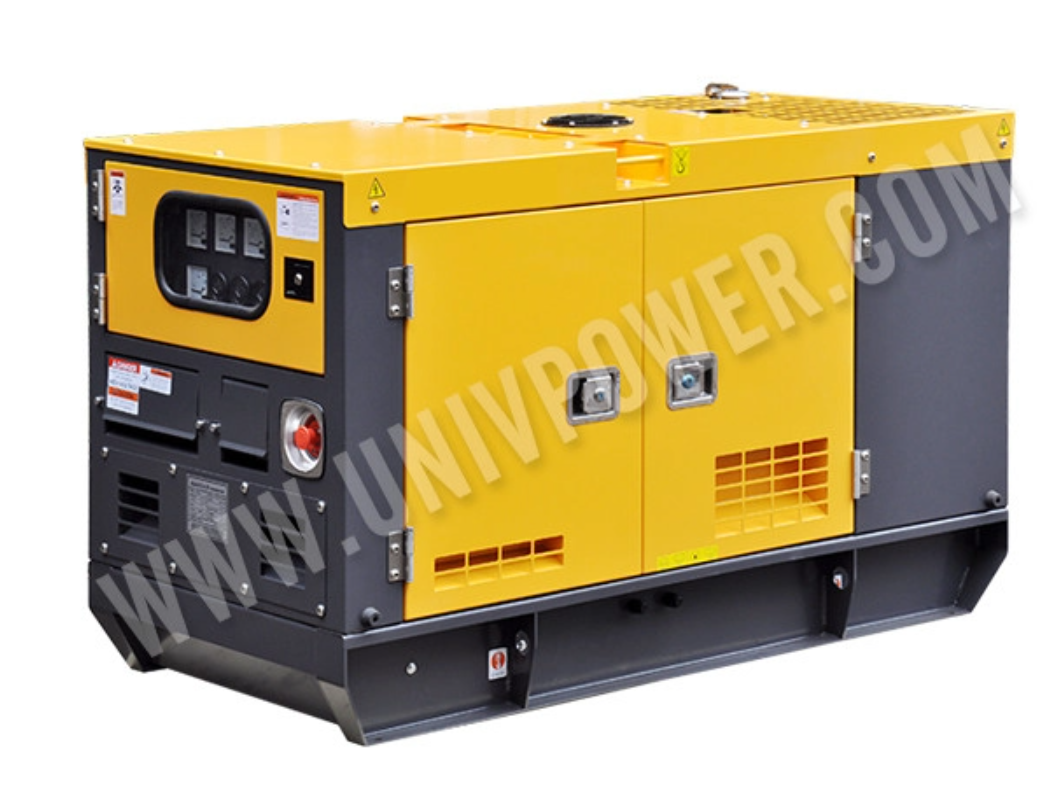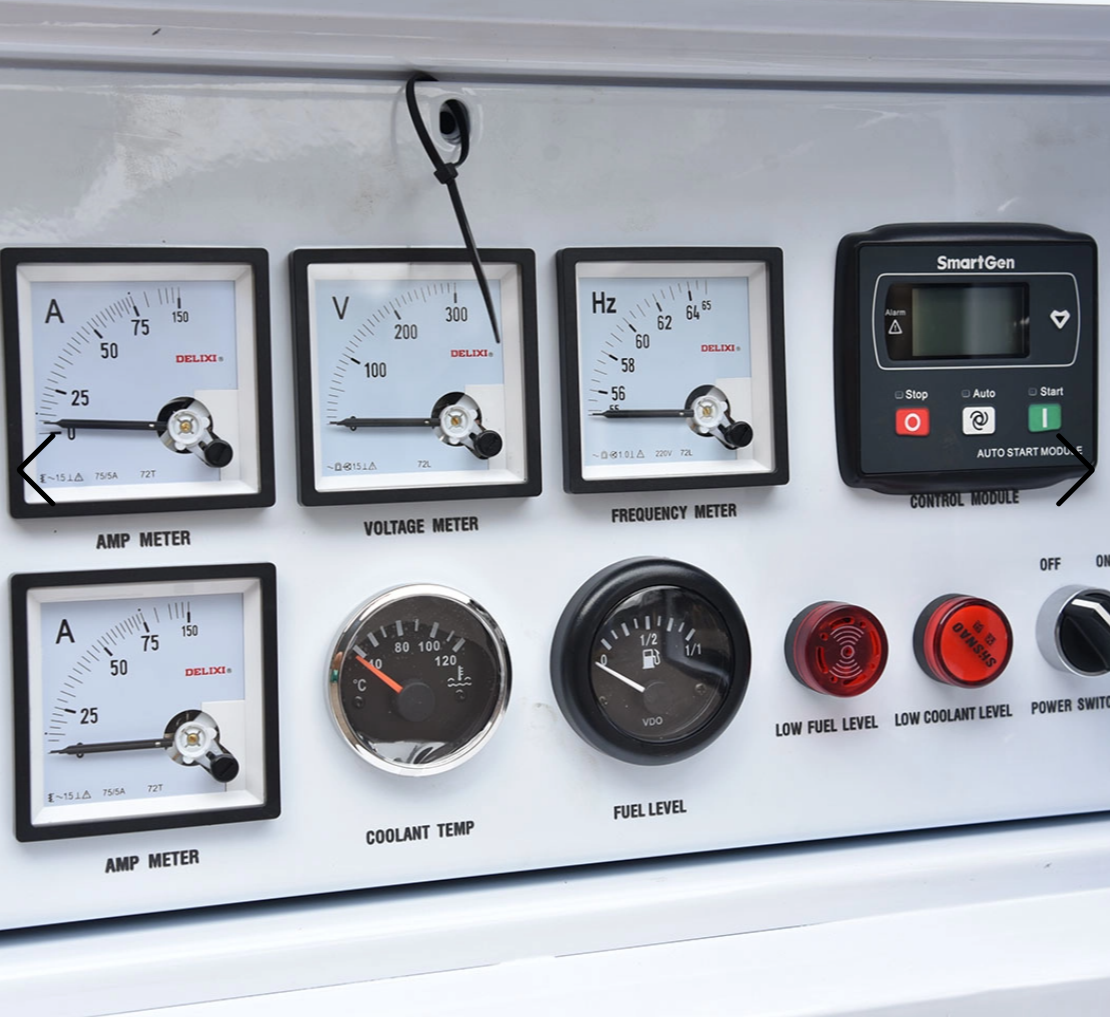Views: 0 Author: Site Editor Publish Time: 2025-06-30 Origin: Site








Standby generators are essential for providing backup power during outages. But how much diesel do they actually use? Understanding diesel consumption is crucial for budgeting and efficiency. Diesel is favored for its reliability and cost-effectiveness compared to other fuels like gasoline or natural gas. In this article, brought by UNIVERSAL, we'll explore diesel usage in standby generators and the factors that affect fuel consumption.
On average, a typical standby generator uses between 0.5 to 1.5 gallons of diesel per hour. Smaller generators, like those in the 5 kW range, generally consume about 0.5 gallons per hour, while larger generators, such as 20 kW units, may use around 1 to 1.5 gallons per hour. The exact fuel consumption depends on several factors, such as the load placed on the generator, its size, and its operational efficiency.
Several factors influence fuel consumption:
● Load: A generator consumes more fuel as the load increases. For example, a 10 kW generator running at full capacity will burn more fuel than the same generator running at half capacity.
● Generator Size: Larger generators use more fuel to produce the same amount of power. A 20 kW generator will naturally consume more fuel than a 5 kW generator, even if both are running at the same load.
● Efficiency: Newer generators tend to be more fuel-efficient. Older units, or those that haven't been properly maintained, use more diesel to produce the same amount of electricity.
● Load Size: The more devices or systems connected to the generator, the higher the fuel consumption. For instance, if you're powering multiple large appliances or machinery, the generator will work harder and consume more fuel. On the other hand, if you're only running essential appliances, fuel usage will be lower. A generator running at partial load is more fuel-efficient than one running at full capacity.
● Generator Size: Generator size is directly tied to fuel consumption. Smaller generators, like a 5 kW model, typically use less fuel compared to larger models (e.g., 10 kW or 20 kW) when running under similar conditions. However, it's important to match the generator size to the load demand to optimize efficiency. If a generator is too large for the load, it will waste fuel running at lower capacity.
● Efficiency of the Generator: The fuel efficiency of a generator depends on its design and maintenance. Newer models often feature more efficient engines, which means they require less fuel to produce the same amount of power. Regular maintenance, such as oil changes, filter replacements, and fuel injector checks, helps keep the generator running efficiently and reduces fuel consumption.
● Generator Age: Over time, wear and tear can affect the performance of the generator. Older generators often consume more fuel than newer ones because parts like fuel injectors and filters may become less effective, and the engine may lose efficiency. Regular servicing and maintaining parts in good condition can help reduce fuel consumption even in older units.

The runtime of a standby generator on a tank of diesel depends on both the generator's fuel tank size and the load it's powering. For instance, a 10 kW generator with a 10-gallon fuel tank might run for about 10 to 12 hours at half load, but the actual runtime can vary based on factors like the type of load, environmental conditions, and how efficiently the generator is operating.
To calculate expected runtime, divide the generator's fuel tank capacity by the fuel consumption rate. For example, if a generator consumes 0.8 gallons of fuel per hour and has a 10-gallon tank, it will run for approximately 12.5 hours (10 ÷ 0.8 = 12.5 hours). Keep in mind that running a generator at full load will reduce its runtime significantly, while a generator running at partial load will last longer on the same amount of fuel.
Fuel consumption varies significantly between small, medium, and large generators. Here's a breakdown:
● 5 kW Generator: Uses around 0.3 to 0.5 gallons of diesel per hour.
● 10 kW Generator: Typically consumes 0.6 to 1 gallon per hour.
● 20 kW Generator: Consumes about 1.2 to 1.8 gallons per hour.
The larger the generator, the more fuel it requires to generate power. Smaller units are more efficient when running at lower loads, while larger units use more fuel even at similar loads.
Standby generators are designed to provide backup power during outages, while prime power generators are intended for continuous use. Here's how they compare in terms of fuel consumption:
● Standby Generators: Typically run only when needed, often at lower loads. As a result, fuel consumption is more efficient during short runs.
● Prime Power Generators: Operate continuously at a higher load, leading to higher fuel consumption. These generators are optimized for long-term use, but they tend to consume more fuel over time.
Fuel use is closely tied to the generator's runtime and load conditions. Standby generators usually have better fuel efficiency because they only operate when necessary and are often run at lower loads. Prime power generators, on the other hand, are expected to perform under full load for extended periods, using more diesel.
To reduce diesel consumption, start with regular maintenance, such as changing the oil and cleaning the air filters. These simple tasks ensure the generator runs smoothly, avoiding unnecessary fuel use. Properly sizing the generator for your specific load requirements is another critical factor. An oversized or undersized generator will be less efficient, consuming more fuel. Additionally, using energy-efficient appliances can help reduce the overall load on the generator, leading to less fuel usage. Installing an automatic transfer switch (ATS) allows the generator to operate only when necessary, preventing it from running unnecessarily and further saving on diesel.
Monitoring fuel consumption is essential to optimize efficiency. Many modern generators are equipped with built-in fuel gauges that display the current fuel level. For more detailed insights, consider using advanced monitoring systems or digital meters that track real-time fuel usage. These systems provide accurate data, allowing you to assess fuel consumption patterns and make adjustments for optimal efficiency. By tracking diesel usage, you can detect any unusual spikes in consumption and identify areas for improvement.

Proper maintenance is crucial for keeping your standby generator running efficiently and reducing unnecessary fuel consumption. Regular cleaning of the fuel tank helps remove dirt, debris, and any contaminants that could disrupt the flow of fuel, ensuring smooth operation. Checking for fuel leaks in the hoses, seals, and connections should be a priority, as leaks not only waste fuel but can also pose safety risks. Another key task is inspecting the fuel injectors and filters regularly. If these parts become clogged, they can affect combustion efficiency, leading to higher fuel consumption. Routine checks and maintenance of these components will ensure that your generator is operating at its best and using fuel as efficiently as possible.
The frequency of servicing depends on how often the generator is used, but as a general guideline, every 100-150 hours of operation, you should change the oil, clean or replace the air filter, and visually inspect the fuel system. For more in-depth maintenance, such as checking the fuel injectors, hoses, and other components, it's recommended to service the generator annually or every 200-300 hours of use. Common signs that your generator might not be operating efficiently include increased fuel consumption, inconsistent power output, or strange sounds and vibrations. These are indications that the generator might need immediate attention to prevent further issues and optimize fuel efficiency. Regular servicing and addressing these signs early can help extend the life of your generator while reducing fuel usage.
Key factors affecting diesel consumption in standby generators include load size, generator size, efficiency, and age. Larger generators and higher loads consume more fuel. To manage fuel usage, perform regular maintenance, size the generator properly, and use energy-efficient appliances. Monitoring fuel consumption and addressing inefficiencies early can also reduce costs.
A: Smaller generators, like 5 kW models, are typically more fuel-efficient when running at lower loads.
A: Standby generators are designed for intermittent use, not continuous operation. They can run for extended periods but should be maintained regularly.
A: Refuel when the fuel gauge shows low levels. The frequency depends on load size and fuel consumption rate.
A: Yes, larger generators generally consume more fuel, especially under similar load conditions compared to smaller ones.